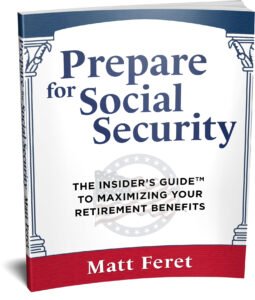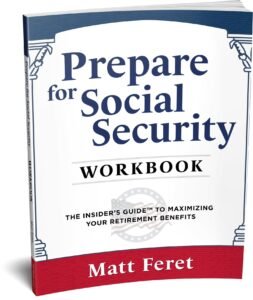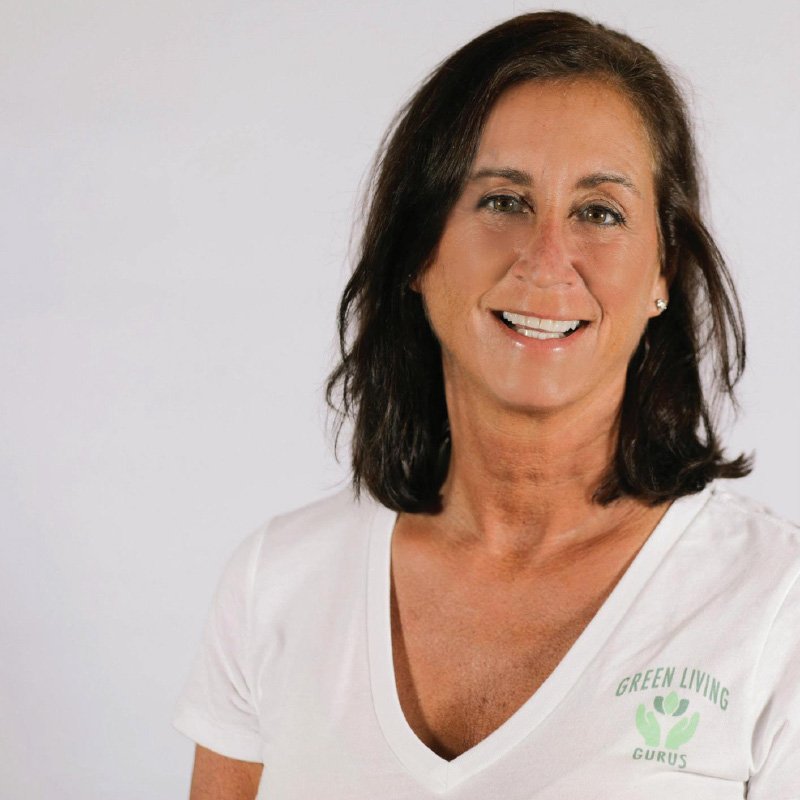Share This:

“Are you tired? If you wake up every day exhausted, and you've been tested for things like sleep apnea, it's not something like that, it's your bed, or you feel aches and pains. This is for people of all ages, but lower back pain can be exacerbated or caused by an improper mattress, or you're a side sleeper and you're sleeping on a firm mattress, and you feel pain the morning on your shoulders and your hips, probably time to upgrade to something more fitted to your style or a new mattress just all together.”
- Marten Carlson
How much should you spend on a mattress? How long do you keep a mattress? What kind of pillows and bedding best promote sleep health? Back sleeper? Side sleeper? Stomach sleeper like me? Marten Carlson of Mattress Clarity has reviewed hundreds of mattresses, pillows, and other types of bedding. His articles on sleep science has helped thousands of people understand the importance of healthy sleep.
On this episode of The Matt Feret Show, learn how to properly assess and customize your sleeping setup, how to research buying a mattress, what these new “bed in a box” mattresses are all about, and a ton of other helpful hints to improving your sleep.
Enjoy!
Listen to the episode on Apple Podcasts, Spotify, Deezer, Podcast Addict, Stitcher, Google Podcasts, Amazon Music, Alexa Flash Briefing, iHeart, Acast or on your favorite podcast platform. You can watch the interview on YouTube here.
Brought to you by Prepare for Medicare – The Insider’s Guide book series. Sign up for the Prepare for Medicare Newsletter, an exclusive subscription-only newsletter that delivers the inside scoop to help you stay up-to-date with your Medicare insurance coverage, highlight Medicare news you can use, and reminders for important dates throughout the year. When you sign up, you’ll immediately gain access to seven FREE Medicare checklists.
Quotes:
“I don't go too crazy for, I don't like to spend a lot on bedding, honestly. Personally, anything over $200 for a set of sheets I'm like, no. I think it's worth it when you think of durability, like long staple cotton, or Egyptian cotton will last longer. You're going to have fewer issues sometimes with types with pilling. So, the more you wash it, you don't want it to start to fray. I don't go too deep, again, on thread count. I'm not as, to be honest, not as much of a bedding guy's mattress, but in my experience, I try to stay away from things that are too much and expensive. We reviewed $500 sheets, and it's nice, I guess, but it's like nice scotch, I don't think I'm sophisticated enough to feel the difference.”
- Marten Carlson
“I would say generally the minimum for me would be about $800. There are some brands that I have tried a queen size, and I'm talking queen size is usually what I use to compare, $800 I think you could still get a good quality. You get below that and, like you said, you're going to be dealing with durability issues, this might not last as long, not the best investment. Anything, in my experience, over 3000, I have not seen an insane jump in quality. I know there's that $10,000 Swedish mattress that has real horsehair in it, it's handmade, and I'd love to try it, just for information's sake or just curiosity's sake. But like any kind of item, when you get into the luxury end, it's more about looking at what we have in the bed versus this is actually going to give you a better sleep. There are leather couches that are going to be less comfortable than just some basic polyfoam couch. It's all about what you want, and if you have the money to spend. But yeah, I think $10,000 is crazy.”
- Marten Carlson
#035
Selected Link from the Episode:
Links, Websites and Mentions:
Facebook: https://www.facebook.com/mattressclarity
Facebook: https://www.facebook.com/marten.carlson
Twitter: https://twitter.com/martencarlson
LinkedIn: https://www.linkedin.com/in/martencarlson
Books:
Full Show Transcript:
00:00:00 / 00:46:18
Hello everyone. This is Matt Feret, author of the Prepare for Medicare book series, and welcome to another episode of The Matt Feret Show, where I interview insiders and experts to help light a path to a successful retirement. If you enjoy this podcast, I'd love your support. How? Well, it's simple. Please follow, like, and subscribe to this podcast wherever you're listening to it. Leaving honest reviews and 5-star ratings really helps the show thrive. Thanks. I'm very excited to announce my new book and workbook are live. Prepare for Social Security: The Insider's Guide to Maximizing Your Retirement Benefits can be found on Amazon and other major online retailers.
(00:45):
If you enjoy this show, I'd love your support. Please follow, like, or subscribe wherever you are. Leaving honest reviews and five-star ratings really does help the show thrive, and also helps others discover it. Thank you.
I'd also like to invite you to sign up for the Matt Feret newsletter. I send two a month, full of new you can use, and you can sign up on any of my three websites, prepareformedicare.com, prepareforsocialsecurity.com, and themattferetshow.com.
Matt Feret (00:45):
How much should you spend on a mattress? How long should you keep a mattress? What kinds of pillows and bedding best promote sleep health? Back sleeper, side sleeper, stomach sleeper like me, Marten Carlson of Mattress Clarity has reviewed hundreds of mattresses, pillows, and other types of bedding. His articles on sleep science have helped thousands of people understand the importance of healthy sleep. On this episode of The Matt Feret Show, learn how to properly assess and customize your sleeping setup, how to research buying a mattress, what these new “bed in-a-box” mattresses are all about, and a ton of other helpful hints to improving your sleep. Enjoy.
(01:28):
Marten, welcome to the show.
Marten Carlson (01:30):
Thanks for having me, Matt, it's great to be here.
Matt Feret (01:32):
So, tell everybody what you do, how long you've been doing it, and how you help people.
Marten Carlson (01:37):
Yeah, so I'm the lead reviewer at Mattress Clarity, which means I am the main reviewer of mostly products, specifically mattresses. It's a very interesting job. I tell people I do it, they're like, "You review mattresses?" It's a real thing. I've been doing it for five years, and how I help people is helping people get the best sleep possible, really. Mostly what I review and what we do on our site with my other reviewers is online products. And the issue with online products, they're great, it's super easy to obviously purchase from home, during COVID that was a huge thing, that people were buying everything from home, but you can't try out the product yourself usually, besides a sleep trial, like, hey, this mattress sounds really great, but I can't try it out for myself.
(02:26):
And so that's where we come in, and where I come in, is I've tried out over 300 mattresses, and so breaking them down through roundups, like if you're a side sleeper, here's what you should look for, here's 10 that'll work for you, or sleep health content as well on video, and also on our website, to basically help you get good sleep, know what affects your sleep overall. I mean, when I started doing this I had, I actually didn't know a lot about sleep, and I didn't know I had sleep apnea, and I wrote one article and I said, "That sounds like me," I went and got checked out, so literally my job saved my life, and so I take it very seriously.
Matt Feret (03:09):
Okay, so I have thousands of questions, we can do this for a long time, but let me start with the first one, which is how long do I keep a mattress? Let's start right there, how do I know if my mattress is shot?
Marten Carlson (03:23):
So, the quick answer usually, it's between seven and 10 years. If you're at the 10-year mark, I don't care what the mattress is, it's probably time to trade that in. I mean, I remember my mattress that I slept on in high school, that thing had been in our house for a long time, sorry mom and dad, but it was garbage. But some signs to look out for, because some cheaper mattresses, or some even newer mattresses that are on the high end might not last for that long, and so number one is sagging. So if you have the canoe effects, if you sleep with a partner and you both end up in the middle of the bed, that's always a bad sign. That means that your foams, your coils, are starting to weaken, lose their supportive qualities. Not a good feeling, obviously, overall.
(04:10):
Another thing is honestly smell. You start to get a strange smell coming from your bed. This is a little bit gross, but your bed traps allergens, it traps dead skin cells, and over time that can start to make you have allergic reactions while you're sleeping. You wake up stuffy in the morning. So red eyes and stuffy not during allergy season, it might be your bed's faults. And then lastly, it's just like, are you tired? If you wake up every day exhausted, and you've been tested for things like sleep apnea, it's not something like that, it's your bed, or you feel aches and pains. This is for people of all ages, but lower back pain can be exacerbated or caused by an improper mattress, or you're a side sleeper and you're sleeping on a firm mattress, and you feel pain the morning on your shoulders and your hips, probably time to upgrade to something more fitted to your style or a new mattress just all together.
Matt Feret (05:12):
Thank you. So again, I'm going to try to take this a little step-by-step, at least how my brain works.
Marten Carlson (05:16):
Sure.
Matt Feret (05:17):
All right, let's say it's been seven to 10 years and I want a new mattress, and I make the mistake, and I say this tongue in cheek, I make the mistake of typing in new mattress in Google or Bing, or someplace, and all of a sudden I've got 8,000 webpages. How the heck do I begin thinking about where to buy a new mattress, what type, where do I even begin on this online world? Do I walk into my local store and forget the internet? Help me, how do I start this?
Marten Carlson (05:48):
So, my quick answer for in store, I try to stay away from them as much as possible. The one upside of them is you can try it out for yourself. One of the big issues though with a lot of in-store mattresses is there's a lot more hidden cost. You're not sure what's in the mattress. One of the things I like about online mattress companies and brands is most of them are very transparent about what's in the mattress. So you go on the site, you know what you're paying for, you know if you're going to get the Nectar versus Nectar Premier, why am I paying more for the Premier, versus some salesperson saying, "Oh, it's just nicer." You want to know what the extra money is getting you, right?
(06:31):
Obviously, I mean our site, mattressclarity.com, is a great place to, I think, begin your search, and to end your search as well. I say start with the kind of, we call it higher in the funnel, look at mattress roundups. So, you know if your main issue is I'm a side sleeper, go to our side sleepers page, that will give you tips in general at the bottom of our buyer's guide of what to think about. Again, I want pressure relief, I want something on the softer end. So even if you don't pick something from our list, you still have an idea how to decode what is on the brand's websites. If you're a back sleeper, same thing, look at our back sleepers page. Or again, go into the sleep health content, if you want to go deep, read everything about what a side sleeper needs and what kind of pillow you need. But that's where we try to come in, is to be everything you need on one site, to figure that out.
(07:28):
But I do, at the same time, recommend taking your time. I don't think there is a quick fix, and there's not one mattress that's great for everybody. It's very specific, again, depending on your feel preferences. You may hate a memory foam feel, and so you're not going to go to our memory foam page. You're like, oh, I like something bouncier, go check out latex, or you like something more supportive, or you're a larger person like me, I'm 270 pounds, we actually have a page for heavy people, for people who need more support, there are mattresses made specifically with people like me in mind. So as you said, it's overwhelming. I mean there are so many. When I started five years ago, I could probably count all the major brands on my toes and fingers, and now it's 20, 30 times that amount. It's completely blown up since then.
Matt Feret (08:23):
All right, so if I'm online searching, and I know, by the way, I'm going to ask you this, I'll ask you now, what if I don't know what I am? I mean I start out on my belly; I go to my side, I end up on the other side, and then I wake up some mornings and I'm on my back snoring, I don't know where I am. Is that because I'm a combo sleeper, or maybe is that because what I suspect is I get a lousy mattress and I really need to pick something?
Marten Carlson (08:47):
It could be both. But I think that if you have an older mattress, probably you can deduce that your mattress is not giving you the support and comfort you need, and so you're constantly moving around at night. And like you said, if you're waking up in different positions every morning, probably not a combo sleeper. A lot of times, for me at least, I've always stood by the idea that whatever you wake up in is your position, your favorite position, because if you like to sleep on your side, it makes you feel comfortable, but you always wake up on your back, that's where you're naturally going. But if you're switching around a lot during the night constantly, and it's always a different position, like belly to back to stomach, stomach is belly, or to your side, it's probably your mattress.
(09:39):
And so I would say once you get a mattress that makes you feel comfortable and supportive, it'll probably let you know... It's a little bit backwards sometimes, you need to try something out. Another option too is to maybe go to a nice hotel. That's one of the tests that we always tell people, or just any kind of hotel where you're like, I don't know if my mattress is giving me what I need. If you go to a nice hotel and you sleep great, maybe you read what kind of mattress was that. It's a good way to try things out. Or if you need to go to a store, try some stuff out there, but you don't have to buy it there. If you don't want to deal with the pushy salespeople you can be like, oh, this is closer to what I like, this says this is medium firm, that's making me feel good.
(10:20):
But it is sometimes hard to deduce exactly what your position is. If you sleep with a partner, maybe they can tell you, "Oh, you seem to sleep on your side a lot when I wake up in the middle of the night." There's ways to do detective work to figure that out.
Matt Feret (10:33):
Okay, thank you. Now back to my other one, I got out of my order as soon as I got into it. How do I know what's the best? Which of course is objective, but I want to say at one point I was shopping for a new mattress and my mom sent me a bunch of clippings, which I'm sure she wasn't supposed to do, she xeroxed Consumer Reports. Which is kind of the, dare I say, old school, original rater and reviewer of everything under the planet.
Marten Carlson (11:08):
Yes.
Matt Feret (11:08):
And so, I took it and I looked and I circled the top three, and cross-referenced with the other top three brands, and I picked one and I ordered it and it showed up. Is that a way to do it, or are there so many other resources and frankly so many other brands out there, and personal preferences, that you need to almost comparison shop your comparison-shopping sites?
Marten Carlson (11:29):
Yeah, I have a friend, we were talking about this one time of, for instance, even not doing mattresses, let's say I'm looking for best headphones. I like to pick the top five sites and see where they cross over. So, if every one of those is saying that these headphones are the best, I have a pretty good idea that there's some consensus across the market. But it is also, it's a mix of doing your own research too. One of the things I like about a site like ours is it tries to go past sometimes the business speak you get on a brand website. So everything's going to be the most cooling mattress, everything's the most comfortable mattress, everything's the most supportive, but again, with any kind of marketing, that's just not always true. Great mattresses, but they're all trying to, it's like you said, the best in the world.
(12:27):
So, our individual reviews I think are good for that, of just being like, all right, does it live up to what the marketing says? At the same time, I've gotten a little too deep in the research myself on different types of foam and different densities of foam and how durable they are, or even things sometimes that are not as effective as marketing says they are. It's times like, okay, I can ignore that for right now, what really matters is this component versus this.
Matt Feret (13:02):
So, it's the concept of overchoice, it seems it's out there a whole bunch. I mean, again, not to always tie it back to Medicare, but that's one of my things. But there's so many choices, how to start, where to start. Do I start with features and benefits? Do I start with price? There's just, yeah, so many things. So your advice is then go to your top five, or pick five sites, and cross reference and see if there are any commonalities.
Marten Carlson (13:31):
Yeah, absolutely. I have a theory that because there are so many options now it's a little bit of princess and the pea, that we now have so many options we believe that there's the perfect bed for our situation. And again, in the past, when I was growing up, you just got a bed.
Matt Feret (13:53):
Right.
Marten Carlson (13:53):
Right, your parents picked it out.
Matt Feret (13:55):
We didn't have any choices, it was you rolled down to the neighborhood mattress store and you go, "All right, I need a twin." "Do you like firm or soft?" "I don't know, pick one."
Marten Carlson (14:05):
Absolutely, you just dealt with it, right? And now it's, on one hand I love there's options, but like you said, it's definitely choice overload, where you're like, I don't even know where to begin, and almost like I know so little to even start my buying journey.
(14:24):
I think a good top place, our best mattress page I think is great for this where it's an all you need to know. Again, best mattress is more of a general term, you're not getting down into your specific needs, but we have on there side sleepers, memory foam, latex options. But the bottom it's the buyer's guide of everything to think about, and what you also just don't need to worry about quite as much. Again, I don't want to give people too much information, it's like you want to think about 965 things when you're going to buy a mattress, that's not making their process any easier, it's making it more difficult.
Matt Feret (15:05):
So we talked about online and reviews, and we talked about in-store, and you said, "I wouldn't go in store." But you also said, well, I don't know if you said it or my brain thought it and put it in your mouth, but what about going online and finding a version of the one you think fits for you and then finding a local store and trying it out? Is there a way to do that and try it out so I'm not buying this sight unseen? And if I do that, is there wiggle room? If the online price is, I don't know, $1000, and you roll in and say, "Hey listen, I found this online for $1000," will the local corner store, corner mattress store, play with that number? Is there a dynamic or a way that a consumer, or a guy like me, can go in there and get a deal?
Marten Carlson (15:57):
That's a good question. Well first off, I think it is a good way to try. A lot of brands now, when it started online it was two separate entities, it was in store were certain brands, and then online were certain brands, and there was really no crossover. The Venn diagram was two separate circles. And now brands like Casper, Purple, Nectar, I believe Saatva's going to be opening stores as well, where it's a good way to go in, as you said, and try them out for yourself. And you can still order from home and get the box delivered, or the white glove delivery if they offer it.
(16:35):
I have never personally experienced or seen better deals at a store. Usually if it's the brand store itself you're probably going to see the same deal, identical to what you're going to see online. In general, I'm talking more about a mattress firm, or you said a neighborhood shop, a general store. They may offer you, I don't think you're going to spend less, they may offer you more accessories from that store, like, "Oh hey, if you get this, I'll throw in an extra sheet set, or pillows, or a mattress protector." But a lot of brands do that online as well, a lot of times you have sleep bundles where buy this mattress, you get everything you need to go along with it.
Matt Feret (17:23):
So this newer phenomenon, and I don't really pay attention like you do, but on my brain it's newer, is a bed in the box. What is this, and is that a real mattress, and are they comfortable? Because it doesn't look like anything when it's delivered or shows up that I would want to sleep on. What is this bed in a box thing?
Marten Carlson (17:45):
Okay, so that was my thought exactly when I started doing this, I said there's no way that this two foot by two foot box, this tube, is going to hold a comfy mattress. And I definitely think there is now a misconception because of the early mattresses that did that, like Amazon mattresses, they would come out pancakes. My first bed when I moved here to Austin was a pancake, and I just dealt with it. I was like, I don't have any money, I'm just going to sleep on it. It was horrible. It was like three inches thick. Most online mattress brands today do you use bed in a box, but they are higher quality and a lot of times, it used to be you couldn't get an innerspring mattress or a hybrid in a box, you can get those too. And so we open them up. I do recommend, like most brands say, give it 24 to 48 hours to completely off gas and expand. You get some chemical smells in there from everything trapped, foam is going to be more compressed right away, give it a couple days, it will fully form.
(18:54):
There are times when there are mattresses I open where it just never fully expands. It's rare, I'll contact the brand and say, "Hey, we got a lemon," and they'll send me a new one. And that's obviously what brands will do if you have an issue, but it's honestly, the majority of the best brands online do bed in a box. And there are, again, those, I think Saatva does not compress, most Tempur-pedics, except for their Cloud mattress, I believe, are not compressed. So, there are still those, if you're still a little scared, they'll come completely expanded. It'll have a plastic bag around it, but that's how they ship it. And then you get white glove delivery, delivery people will bring it inside, set it up in your bedroom for you, which can take a lot of the worrying away about what's this going to look like, like you said, when I take this out of the box.
Matt Feret (19:49):
I've seen those and I've seen return policies, or them being advertised, "Sleep on it for six months and we'll take it back no questions asked," or whatever timeframe. I don't know why it seems weird to me that I would sleep on a mattress and then return it. Is that a thing, or is that something I should absolutely be looking for when buying a mattress, is the ability to figure out whether or not it's working with my body, with my sleep patterns, and being able to return it?
Marten Carlson (20:18):
I think so, for sure. And the majority of brands, especially online brands, have some kind of sleep trial. The least you're going to find is 100 days, so a little over three months, up to, like you said, six months, and other brands do a whole year. And as you said, the thinking behind that is you're not going to know right away if this mattress is right for you. Some, especially bed in a box mattresses, they feel a little firm at first, and they take a little time, the break in period. Specifically beds like, while they're not bed in a box, a Tempur-pedic mattress, high quality memory foam, super high density and at first you're like, oh, this isn't giving in at all, but over time it does start to respond to your body. But you may be, as you said, six months in to a year trial and say, I thought I was a back sleeper, like you said before, I'm not even sure what I am, I thought I was a back sleeper, if turns out I'm a side sleeper, and I'm waking up with aches and pains every night.
(21:20):
The way, a lot of times, if you are going to return it, is they will usually work with some kind of charity to come to your place and pick it up. They're not going to be selling that to another customer through the site. But they want to give back, it's a good way to give those to Salvation Army, or organizations like that. Obviously if it's in good shape, if it's not they're just going to probably have to recycle it in some other fashion. But I think, as you said, it's a really good idea to make sure you have some kind of sleep trial, and warranty as well, and it's usually going to cover your mattress defects, or premature sagging. They get super specific, mattresses are going to sag over time, but if it's sagging a lot early, that's a good way to protect yourself, is say, "Oh, I'm three years into this and it's a canoe. Please get me a new model, or something else, or just a full refund," and a lot of brands will do that for you.
Matt Feret (22:20):
That's really interesting. It always seemed like eating three quarters of your dinner then sending it back to the kitchen, but I guess it's a thing, it is, and I shouldn't think of it like that, should I?
Marten Carlson (22:31):
No, I don't think so, and I don't think it's being disingenuous in any way to be like, no, this isn't working for me. A lot of times with warranties it's like, if you mistreat the mattress, that's why it's not working well, that would be on you, like with any product, but if you're just sleeping on it and it's not working, most of these brands are going to work with you to return that or swap it out for different model, or again, refund.
Matt Feret (22:57):
Let's move to pillows.
Marten Carlson (22:59):
Yes.
Matt Feret (22:59):
Does the same thinking go there in terms of the type, I mean, here's how I buy pillows. I go to Costco and I walk by and I go, my pillows are pretty gross, these are on sale, I should buy four of them. I'm going to guess you're going to say that's not the right way to do this.
Marten Carlson (23:17):
I mean, whatever works. And if those are flatter pillows that aren't great, you can put a couple under your head and it's okay. But in general, yeah, you want to find something specific to your situation. And so pretty similar to what you're dealing with mattresses, for mattresses you want firm for stomach sleeping, medium firm for back sleeping, soft for side. With pillows, back, similar kind of a medium loft. But for side sleeping you want something thick and supportive, and that's because when you're on your side, you want to keep your spine in neutral alignment at all times, that's the name of the game to prevent pain of all types with your joints and all over your body. With a tall supportive pillow, it's going to keep your head aligned and held up with the rest of your spine.
(24:15):
Stomach sleeping in general is not good. A lot of chiropractors say it's not good for your back, you need a super firm mattress, again. But if you do sleep on your stomach, you can almost have no pillow at all. If you're going to have a pillow, you want super, super thin, maybe it's for a little bit of comfort on your face. But when I have stomach slept, I sleep on a super big pillow top mattress, I don't have a pillow at all, because you don't want your head kinked off the mattress like that. We actually had a chiropractor visit and we were doing some videos together, gave us a lot of great information about that. It's all about you, again, that neutral alignment, making sure you're not, when you're on your back, being pushed like that, on your side, that, or sinking down in the mattress, or on your stomach being pushed away from the bed.
Matt Feret (25:06):
I've been made to feel very guilty for stomach sleeping for many years and I'm not sure I can change it, and here's another example guys.
Marten Carlson (25:17):
I'm adding fuel to the fire on that.
Matt Feret (25:19):
Yeah, no, I know it's my own hangup, it's fine. I don't know, that's how I sleep. At least that's how I start off. All right, well hey, I'll ask you, you're a sleep expert, how do I change the way I go to sleep? Or change the way I sleep if I'm not doing it right?
Marten Carlson (25:33):
There are ways to train your body, and a lot of times, from what I've seen, it's with pillows in different parts of your body. So if you're constantly rolling onto your back and you don't want to be on your back, you can put a pillow behind your lower back when you're on your side. There's ways to, if you are going to sleep on your stomach, you can also put a pillow under your pelvic area to keep your hips aligned and to keep your pelvis from sinking too far into the mattress. So there's pillows, those are the main ways I've seen. But in my experience, I'm a back and side sleeper, and I can't change that. I just rolling with it. Like you said, the only situations to, if you're okay on your stomach, you're probably okay, but with health issues, and sometimes doctors will say, "You can't sleep on your back."
(26:34):
For me, I have sleep apnea, so back sleeping in general is not good, and if I am going to do it, I need to elevate my head in some way. Side is best for that. But other health issues as well, they may recommend an adjustable base. We've been reviewing those as well, to have those at home to maybe raise your head a little bit when you're sleeping, which will also help you stay in certain positions. But all types of things you might want to talk to, obviously, your medical professional about when it comes to how your sleeping affects your overall health as well.
Matt Feret (27:08):
I didn't even ask about those, but I do want to know those. All these fancy commercials out there about you can raise your bed with a button, sit up, and I don't know, if you're eating crackers or watching TV or both, but it's like a La-Z-Boy, but it's your bed.
Marten Carlson (27:26):
Yes.
Matt Feret (27:27):
I would imagine that that adds price and complexity. Is that what you should be doing in bed, or should you be sleeping in bed?
Marten Carlson (27:34):
I think in general, so mostly your bedroom should be a place for sleep and intimacy. It should not be for TV, for work. I was guilty during COVID, working from home and using my laptop in bed, having lunch in bed. We all definitely developed some bad habits. In general, you don't want to eat in bed for bedbug issues, also just keeping your mattress clean in general. You also want to keep your bedroom cool, dark, and quiet, it's all that good sleep hygiene, to promote the best sleep possible.
(28:18):
Most people I think who need adjustable bases, it's best for people I think with health issues, or with other types of pain issues. Or like you said, it is sometimes fun to, if you are a studio apartment, you don't have a couch area, or hey, I do want to watch TV. I have a TV in my bedroom too, I don't always practice what I preach. So it's like, okay cool, I can sit up and watch Smokey and the Bandit, and then lie back down, so it's the best of both worlds.
Matt Feret (28:54):
Good choice, Smokey and the Bandit.
Marten Carlson (28:56):
Can't go wrong with that.
Matt Feret (28:58):
And I know this is going to seem random maybe as a question, because I'm going to get into bedding next, because that's the third piece of this, is bedding. But what about the whole cool yourself off, your partner turns the heater on, dual comfort zone, it feels like you're in a luxury automobile, and trying to fight with who's going to be cold and who's going to be hot. Is that stuff important? Not important? Worth the price? Not worth the price?
Marten Carlson (29:23):
Are you talking more of beds like the Eight Sleep and Sleep Number, and those kinds of things, with the actual cooling?
Matt Feret (29:28):
Yeah.
Marten Carlson (29:31):
It depends. I've tried the Eight Sleep, and it's high tech. That thing, it gets cold. It really, really does. It runs water throughout the cover, there's a giant thing called, I think it's called the hub, on the side. It's something out of 2001, it's very Stanley Kubrick, and it pumps either cool or warm water into your bed. Like you said, it's two sides. I think it's worth it if that could be, again, a health thing, or you are an extreme hot sleeper. I'm a hot sleeper but not that bad, and we'll get to bedding, more normal types of bedding and ways to stay cool at night. There's also something called the BedJet, and the BedJet puts air, basically shoots air underneath your covers at different temperatures to keep you cool. But a lot of times the right sheets, the right comforter, and the AC is going to do you just fine, and the right mattress as well.
Matt Feret (30:30):
Gotcha, thank you. So bedding, I guess that's the third part of this piece, right? Bedding, Egyptian cotton, cotton, thread count? I mean, again, the number of options you have and what you hear and see out there, it's just dizzying. Help us and help me.
Marten Carlson (30:50):
I don't go too crazy for, I don't like to spend a lot on betting, honestly. Personally, anything over $200 for a set of sheets I'm like, no. I think it's worth it when you think of durability, like long staple cotton, or Egyptian cotton will last longer. You're going to have fewer issues sometimes with types with pilling. So the more you wash it, you don't want it to start to fray. I don't go too deep, again, on thread count. I'm not as, to be honest, not as much of a bedding guy's mattress, but in my experience, I try to stay away from things that are too much and expensive. We reviewed $500 sheets, and it's nice, I guess, but it's like nice scotch, I don't think I'm sophisticated enough to feel the difference. If that's your thing, cool, but maybe not for me.
Matt Feret (31:52):
I never did that with wine either, I could never tell, I had to fake it. They're like, "How does that taste?" And I go, "Well, that tastes good." Well, is that the expensive one or the cheap one? I have no clue.
Marten Carlson (32:03):
Do you get the green apple in there, or that kind of bark?
Matt Feret (32:06):
The tannins and the hints of oak, oh yes, I got all of those. Yeah, that's hilarious. All right, so back to cool stuff around mattresses. So we've got mattresses, we've got pillows, we've got bedding, And then you said something called the BedJet, didn't you? Did you say the BedJet? What is the that?
Marten Carlson (32:23):
The BedJet. That's, again, it's going to shoot air underneath your sheets, underneath your comforter. I think it's a little extreme. When it comes to bedding, one thing I do know about it is keeping it nice and breathable if you're a hot sleeper. So there are a couple different major weaves of cotton sheets and duvets, you'll have sateen or percale, and in general percale is going to be more breathable than sateen, it has more of that laundered shirt feel. Sateen will be a little bit thicker, a little bit softer and silkier.
(32:57):
If you're a hot sleeper usually something with percale that's going to have some nice breathability to it, pairing that with a more breathable comforter, in general a down comforter is going to be better than a down alternative. It's going to cost you more, but there is more natural airflow with that, versus that more polyester design. And you can also, there are cooling pads that you can add to your bed, something called a ChiliPad. I believe Eight Sleep does have something, it's a separate thing you can put on your bed. And a lot of times if you have breathable sheets, breathable comforter, there are cooling pillows that are cool to the touch, you can feel it even through the pillowcase, you combine that with a nice AC unit and you're going to be okay.
(33:46):
To your original question too about, sleeping with a partner is always a major issue for couples with people with different preferences. It comes up a lot, and you hear about things like sleep divorce, where a lot of couples are sleeping separately in their house, where they have two bedrooms because their preferences are so different. Or snoring is an issue, or moving around at night is an issue. Sometimes it may be you each have different sheets. So you could have, especially if you have a split king mattress, you each can have your own sheets on your side, you can have different covers so you're also not fighting over the same covers during the night, another issue for a lot of couples.
(34:27):
In addition, thinking about something called motion transfer, motion isolation, that's that feeling when you're on your side of the bed, your partner gets up to go to the bathroom, you feel the whole bed shake. Some beds are better at cutting down on that, some are not as good. And so something with thick memory foam on top is usually very good at absorbing that motion, but some inner spring mattresses are also good at cutting down on that motion transfer. Basically, anything to keep you from fighting over sleep and waking each other up at night, making sure it's a nice comfortable spot for both of you.
Matt Feret (35:00):
Yeah, okay, that's good stuff, thank you. Have you noticed in your research, and all of your interactions with the mattresses and the bedding, and everything else, are there different ages where you have to pay attention to certain things and you might not have in prior years? And so if you think about aging, I mean, I've got more aches and pains now than I did when I was in my 20s, for sure, and I'm going to assume when I'm in my 70s I'll have more as well. Are there guides out there, or advice, is there advice out there around people and how their bodies age and what type of support and mattress they need? Or is this type of advice universal? Or is there a difference when it comes to age?
Marten Carlson (35:50):
That's a really good question. I think it's more specific, again, to the issues they may be dealing with. So for instance, my mom has arthritis, and so for her pain relief is a big thing. As you said, back pain. So getting a bed with some sort of enhanced lumbar support can help there too. Generally, people I know in my life with fibromyalgia, more chronic pain, pressure relief can help with that. It's obviously not going to fix everything. But also a big thing in general for people as they age, especially when you're getting into later ages where you're having trouble with mobility is the response of your mattress, and that's one of the main drawbacks of memory foam.
(36:44):
So on one hand it's great with pain and pressure relief, but something with thick memory foam right on top may make you feel stuck in the mattress. And so a lot of times people complain, "I don't like to feel like I can't move around," or if incontinence is an issue, "I have to go to the bathroom many times a night and I have trouble getting out of bed," that's going to be an issue. Or edge support as well, which is, again, how supported the edge of your mattress is, you want something that's going to actually give you support to sit there, if you need to lean over and tie your shoes, or to get out of bed. The whole thing collapses under your weight, it's not going to be very safe, specifically if mobility is an issue.
Matt Feret (37:25):
Oh, I didn't think about all those things, that makes a lot of sense. I don't have a memory foam mattress, but I have slept in them before, and you're right. I mean, they're harder to get out of, because when you plant a hand and try to swing a leg over, your hand drops six inches. It is different like that. Yeah, those are interesting pieces there. And in terms of pillows, similar advice if you are dealing with some stuff either, at any age, really, in terms of health or health challenges?
Marten Carlson (38:04):
Different ages, but obviously pregnancy, there's pregnancy pillows which are built specifically to give you support where you need it during those months. Getting older when you get into any kind of neck issues as well, there are pillows built sometimes specifically for that, just the right amount of neck support. Things get pretty high-tech in the pillow sphere for that, and medical pillows too. If you're dealing with severe medical issues it may be something prescribed, or a doctor's going to help you find the right thing for your specific problem. When it gets into I have this slipped disc, or I have this herniated disc, you're going to really want to speak with your doctor about exactly what you need to make sure that you're getting the support and the comfort you need and not being a danger to your health as well.
Matt Feret (38:58):
I should have probably asked this earlier, but it's also not a fair question, so maybe it's good that I keep it for the end. How much money should I spend on a mattress? Is there a min/max? I mean, I have friends that have said, "I spent $10,000 in a mattress," and I've said, "I've bought a used Honda for $10,000." Is there a crazy amount? Look, you can't buy a car for $500 and expect it to run more than 38 seconds. Is there this kind of range or is it really all over the map due to so many choices and the different levels of quality?
Marten Carlson (39:34):
That is a great question, and I would say generally the minimum for me would be about $800. There are some brands that I have tried a queen size, and I'm talking queen size is usually what I use to compare, $800 I think you could still get a good quality. You get below that and, like you said, you're going to be dealing with durability issues, this might not last as long, not the best investment. Anything, in my experience, over 3000, I have not seen an insane jump in quality. I know there's that $10,000 Swedish mattress that has real horsehair in it, it's handmade, and I'd love to try it, just for information's sake or just curiosity's sake. But like any kind of item, when you get into the luxury end, it's more about look what we have in the bed versus this is actually going to give you a better sleep. There are leather couches that are going to be less comfortable than just some basic polyfoam couch. It's all about what you want, and if you have the money to spend. But yeah, I think 10,000 is crazy.
(40:57):
I do have a story though. When I first started reviewing mattresses, my best friends here asked me to house sit for them, and they're like, "Hey, stay at our house for a week, we're going to be out of the country, you can just sleep here," I'm like, "Cool." They had a super expensive bed, I need they spent seven, eight grand on it, and they were really proud of it. So they come back, they're like, "What do you think?" And I'm like, "It was all right."
Matt Feret (41:25):
Come on, they wanted that feedback badly, the sleep expert guy.
Marten Carlson (41:30):
They were so mad. They were so mad. And I was like, "No, it was good, but it wasn't worth $8,000," and it was hilarious. And I still make fun of them for it, I'm like, "How's your bed? Is it still great?" And again, it was a nice one, but I was like, "I think you spent a little bit too much on that." Because again, I've tried some that are, maybe that sweet spot is 1500, 1600, those hybrids that are right around there, I love that. I love those kind of mattresses, and that's usually where I hang out. But again, if you get over three, four grand, I think you're into scary territory of what you're getting.
Matt Feret (42:07):
No, that's really good to know, because somebody who can't sleep or is having a hard time or needs a new mattress and says, "By gosh, I want to get eight hours, the more I spend, the more sleep I'll get," you're saying no, that's not exactly true.
Marten Carlson (42:23):
Yeah, not always the case. And there are some very nice luxury ones that I'm sure will still give you a great sleep, but you're still, you could have saved three, four grand and spent that on, like you said, a down payment on a house, or a car, or something else that you need to get.
Matt Feret (42:39):
Yeah, my interpretation of what you said, it's kind of the law of diminishing returns. After $3,000, sure you can get a higher quality, but dollar for dollar, the $1 more above 3000 isn't $1 more worth of comfort and/or functionality, it's less and less and less as you get more expensive. Your sweet spot's 800 to 3000.
Marten Carlson (43:01):
Yes, absolutely.
Matt Feret (43:03):
That's awesome advice, thank you, and very practical.
Marten Carlson (43:05):
Yeah, of course.
Matt Feret (43:06):
Tell me, what questions about sleep, sleep science, mattresses, anything else that I should have covered that I didn't, or questions that I should have asked that I did not?
Marten Carlson (43:17):
Trying to think. I think that's all, you hit it all. I think we got a lot of stuff covered.
Matt Feret (43:24):
We hit it all?
Marten Carlson (43:25):
Yeah, yeah. Maybe not all, but my brain is a little bit, I can't think of anything off the top of my head, but this was awesome.
Matt Feret (43:33):
Okay, awesome. Well, I'm glad I did at least a decent interview to stump the mattress expert, dude, that's awesome, thanks.
Marten Carlson (43:42):
Yes.
Matt Feret (43:44):
All right, I guess that's it. Give me some last advice, give me some final thoughts around people who are having difficulty sleeping, which seems like everybody I talk to these days, and aches and pains, and the craziness of online shopping, or in-store shopping. Yeah, take us home, give us a final flurry, if you will.
Marten Carlson (44:07):
Yeah, I would say don't be overwhelmed. While it can feel overwhelming for all the options out there, if you find sites like ours, Mattress Clarity, I think they can be helpful to help you narrow down your decision. I also think don't push through the pain. I think that if you feel pain in your body, listen to it, and if it is because of your mattress, it's time to upgrade. And there's also, it can seem like a lot of money at first but considering how much you're going to use your mattress and your bedding, it's a worthwhile investment. If you're going to get seven to 10 years out of this thing, do the math, you're really not spending that much money. And just to help financially, there are payment plans with a lot of these brands. So if you are worried about that big chunk of change, you can pay out over monthly installments for years to come.
Matt Feret (45:06):
Marten, thanks very much.
Marten Carlson (45:07):
Thanks for having me.
Matt Feret (45:09):
Marten, thanks a lot. If you liked this episode, please follow, like, subscribe, and rate the show. Make sure to hit The Matt Feret show website for links and show notes. Until next time, to your wealth, wisdom, and wellness, I'm Matt Feret and thanks for tuning in
(45:28):
The Matt Feret Show, related content, publications, and MF Media LLC is in no way associated, endorsed, or authorized by any governmental agency, including the Social Security Administration, the Department of Health and Human Services, or the Centers for Medicare and Medicaid Services. The Matt Feret Show is in no way associated with, authorized, approved, endorsed, nor in any way affiliated with any company, trademark names, or other marks mentioned or referenced in or on The Matt Feret Show. Any such mention is for purpose of reference only. Any advice, generalized statistics, or opinions expressed are strictly those of the host and guests of The Matt Feret Show. Although every effort has been made to ensure the contents of The Matt Feret Show and related content are correct and complete, laws and regulations change quickly and often.
(46:18):
The ideas and opinions expressed on The Matt Feret Show aren't meant to replace the sage advice of healthcare, insurance, financial planning, accounting, or legal professionals. You are responsible for your financial decisions. It is your sole responsibility to independently evaluate the accuracy, correctness, or completeness of the content, services, and products of, and associated with, The Matt Feret Show, MF Media LLC, and any related content or publications. The thoughts and opinions expressed on The Matt Feret Show are those of the host and The Matt Feret Show guests only, and are not the thoughts and opinions of any current or former employer of the host or guests of The Matt Feret Show, nor is The Matt Feret Show made by, on behalf of, or endorsed or approved by any current or former employer of the host or guests of The Matt Feret Show.














